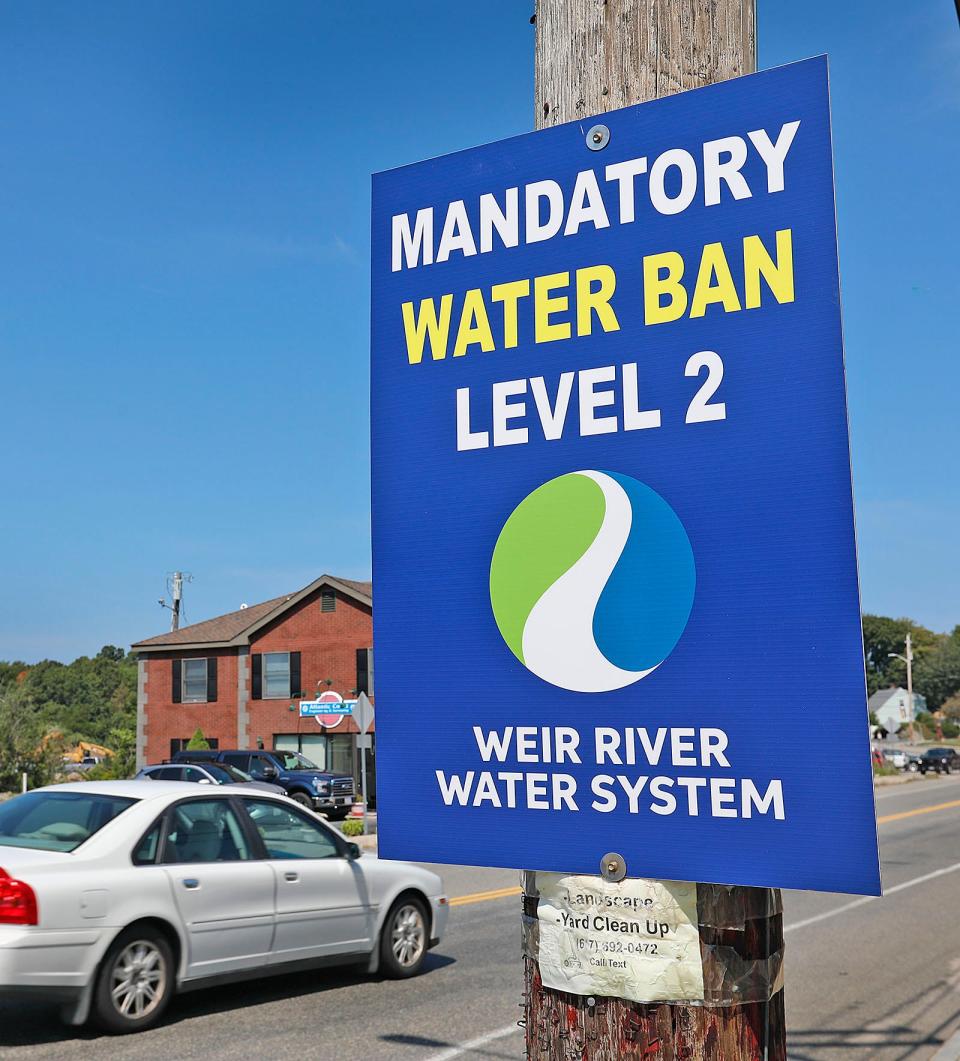MWRA waives fees for new town water hookups due to drought, bacteria levels
BOSTON – High levels of bacteria in local water, mandatory drought restrictions and limited supply in South Shore communities has prompted the Massachusetts Water Resources Authority to waive the usual entrance fees for towns looking to join the regional water system.
The MWRA Board of Directors last week voted to temporarily waive the fee new communities pay to join the system, citing challenges like stressed river basins requiring water restrictions, rising concerns about PFAS chemicals and the limits low water supply places on burgeoning development.

The MWRA gets its water from the Quabbin Reservoir, which remains over 90% full and is well within normal operating conditions for this time of year. The authority said that even if the drought continued for several years, there would be adequate supply to fully meet the needs of MWRA’s existing water communities and, if needed, to augment the supplies of nearby communities in need.
“Ensuring the availability of clean, safe drinking water is critical to public health, safety, and protecting our environmental resources,” Energy and Environmental Affairs Secretary Beth Card, who chairs the MWRA’s Board of Directors, said in a statement. “The MWRA’s water supply system is a tremendous resource and by waiving the entrance fee for new communities, interested municipalities will be able to better assess their own communities’ needs and the hurdles that may impact them."
Happening now: Continuing drought forces tighter water restrictions in South Shore towns
Continuing drought on the South Shore has forced many local communities to tighten restrictions on outdoor water use.
Weymouth changed its recommended water conservation measures to mandatory restrictions earlier this month, following the lead of towns like Braintree, Randolph and Holbrook, which are served by the Tri-Town Water District. Weymouth's Public Works Department said water levels at Great Pond are at their lowest in six years, dropping by nearly 6 feet since March. The 6 inches of rain that the town has recorded in the past four months is the lowest in more than 20 years.
The Abington-Rockland Water District has prohibited all outdoor water use, and in Pembroke it is permitted one day per week. Restrictions on outdoor watering are in place in Hingham, Hull, Cohasset, Scituate, Marshfield and Hanover.

Quincy and Milton get their water from the Massachusetts Water Resources Authority, which urges water conservation but currently has no restrictions on outdoor use.
“The MWRA has excess water to sell, and many communities near our system need water," Lou Taverna, chairman of the MWRA Advisory Board, said in a statement. “The benefit for existing communities is a reduction in their assessments each time a new member joins. That’s why the advisory board began exploring the option of temporarily waiving the entrance fee.”
In addition to a lack of water due to low rainfall, many South Shore communities are also dealing with high levels of PFAS – known as "forever chemicals" – in municipal water.
PFAS is an acronym for per- and polyfluoroalkyl substances, man-made chemicals that have been used in a variety of applications since the 1950s, from nonstick cookware and water resistant clothing to food packaging materials and firefighting foam. They are considered a forever chemical because they don't break down and can accumulate in the body.
Uniquely Local: Love of Marshfield summers, family sparks idea for brand of Hawaiian-themed flannel shirts
Sports: Nate Sampson a big-play machine for North Quincy football in 36-6 win over Malden Catholic
Communities like Braintree and Rockland have recently had to contend with installing new water filters to reduce the chemical levels to a safe range.
Local towns have also rejected new developments in recent years, citing inability to provide water to new buildings.
Weymouth Mayor Robert Hedlund earlier this month said the town won't provide water or wastewater service for a proposed hotel at Union Point. CP Endeavor Holdings 18 LLC wants to build a TownePlace Suites, the extended stay lodging brand owned by Marriott, at the 1,440-acre former air base in Weymouth, Rockland and Abington.
"It's an unprecedented situation, where they're moving ahead and we’re saying, 'We are not giving you water,'" Hedlund said.
Though the MWRA removed one barrier for entry, others remain. The admissions process includes a robust environmental review, pipes must be built to connect the nearby communities to the MWRA’s system, and in some cases modifications to the MWRA’s infrastructure must be made to meet the requested demand.
Thanks to our subscribers, who help make this coverage possible. If you are not a subscriber, please consider supporting quality local journalism with a Patriot Ledger subscription. Here is our latest offer.
Reach Mary Whitfill at mwhitfill@patriotledger.com.
This article originally appeared on The Patriot Ledger: MWRA waives fees for town water hook ups due to drought, bacteria levels

